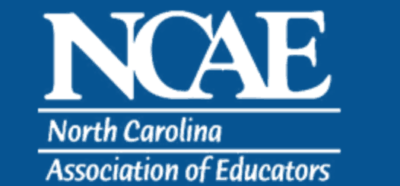In the latest round of funding for the state’s Advanced Teaching Roles pilot, the North Carolina State Board of Education awarded grants to three districts that will implement Opportunity Culture roles—Halifax County and Hertford County in eastern North Carolina and Lexington City Schools in Davidson County.
These rural and small-town, high-poverty districts struggle with academic success and attracting and retaining teachers. They will use Opportunity Culture roles, which have produced outstanding student growth elsewhere, to provide intensive support to all teachers, paid career advancement and a stronger teacher pipeline.
The national Opportunity Culture initiative, founded by Public Impact, extends the reach of excellent teachers and their teams to more students, for more pay, within schools’ recurring budgets. The Advanced Teaching Roles pilot, begun in 2016, was intended to improve student learning outcomes by allowing excellent teachers to reach more students by leading a teaching team and taking accountability for all of the team’s students, and receive salary supplements for these advanced teaching roles, with models that can be replicated statewide.
Halifax and Lexington City will design their Opportunity Culture plans this spring for implementation in fall; Hertford County Schools will spend the next year planning for implementation in fall 2020. Public Impact will assist these districts in planning and early implementation.
Multi-Classroom Leadership is the foundation of an Opportunity Culture. Each school’s design and implementation team, which includes teachers, uses Multi-Classroom Leadership and other roles to reach more students with high-standards, personalized instruction—one hallmark of great teachers. Multi-classroom leaders (MCLs) lead a small teaching team, providing instructional guidance and frequent, on-the-job development, while continuing to teach part of the time. The schools redesign schedules to provide additional school-day time for teacher planning, coaching and collaboration. MCLs typically lead the introduction of more effective curricula, instructional methods, classroom management and schoolwide culture-building.
Accountable for the results of all students in the team, multi-classroom leaders earn supplements averaging 20 percent (and up to 50 percent) of teacher pay, within the regular school budget. The school design teams reallocate school budgets to fund pay supplements permanently, in contrast to temporarily grant-funded programs. Funding from the Advanced Roles pilot will not be used for pay supplements, but for planning and implementing Opportunity Culture and associated professional development.
In the 2017–18 school year, Opportunity Culture schools in North Carolina—the largest implementation state so far, with about 80 schools—outpaced the state results in student growth. While only 27 percent of non- Opportunity Culture schools in North Carolina exceeded student learning growth targets, nearly double that—53 percent—of Opportunity Culture schools exceeded growth.
In early 2018, researchers at the Brookings Institution and American Institutes for Research released a study showing the effect Opportunity Culture multi-classroom leaders can have: Teachers who were on average at the 50th percentile in student learning gains, and who then joined teams led by multi-classroom leaders, produced learning gains equivalent to those of teachers from the 75th to 85th percentile in math and from the 66th to 72nd percentile in reading in six of seven statistical models. Nearly three-fourths of the schools in the AIR-Brookings study were Title I; nearly all of the schools in Halifax, Hertford and Lexington City are Title I. Founded and led by Public Impact, which is based in the Chapel Hill, N.C., area, Opportunity Culture now includes more than 25 districts in nine states (not all are yet publicly announced).
“We are thrilled that these three districts will receive support from the state to make a proven, major difference for their teachers and students,” said Stephanie Dean, vice president of strategic policy advising at Public Impact. “We look forward to helping their educators design an Opportunity Culture model that fits each school’s context and needs.”
Halifax County Schools (HCS), led by Superintendent Eric Cunningham, has 10 schools and 178 teachers. They serve about 2,560 students, of whom about 84 percent are black, 6 percent American Indian, 4 percent white and 4 percent Hispanic. One hundred percent of the students are eligible for free or reduced-price lunch. The district suffers from a teacher turnover rate of 29 percent and academically struggling students.
“We are grateful to be awarded the grant to partner with Public Impact in the Opportunity Culture model,” Cunningham said. “This grant will allow our district to develop a strategic and sustainable model to compensate teachers who work above and beyond to meet the needs of our students. The mission of HCS is to create a positive and supportive learning environment. This partnership is a big step in building teacher capacity—a critical component to raising student achievement. Halifax County Schools is well on the way of becoming a lighthouse school district for all students.”
Hertford County Public Schools, led by Superintendent William T. Wright, Jr., has seven schools and 190 of teachers. They serve about 2,900 students, of whom about 79 percent are black, 4 percent Hispanic, and 13 percent white, with about 98 percent eligible for free or reduced-price lunch. The district is focused on creating its own educator pipeline given its annual teacher turnover rate of 20 percent and a three-year average rate for administrator turnover of 19 percent.
“Hertford County Public Schools is honored to be chosen as a recipient of funding to support the state’s Advanced Teaching Roles pilot,” Wright said. “The Opportunity Culture initiative is directly aligned with our district’s strategic goals in the areas of operational efficiency, teaching and learning, and talent acquisition and development. Hertford County Public Schools, working in conjunction with Public Impact, is impacting lives positively by increasing student learning through the development of excellent teachers, in keeping with our district’s motto by being ‘All In for Learning.’”
Lexington City Schools, led by Superintendent Anitra Wells, has seven schools and 181 teachers. They serve 3,200 students, of whom about 30 percent are black, 35 percent Hispanic, and 22 percent white, with about 93 percent eligible for free or reduced-price lunch. Its teacher turnover rates are as high as 36 percent (middle schools); it competes for teachers with Charlotte, Winston-Salem, and Greensboro—three of the state’s largest districts—all of which are able to offer higher salary supplements and a broader range of teacher and leadership opportunities.
“We are overly excited and humbled to have been selected for this grant opportunity,” Wells said. “This grant will enable us to utilize our most effective teachers to help support other teachers as we focus on growing every child, every day, in every classroom. Our students deserve the best, and this model will ensure that they each get exposure to the best instructional strategies and staff available. We, in Lexington, have challenged ourselves to meet every child where they are and support them in reaching their maximum potential. This model helps us in staying true to that goal.”
In the first phase of the Advanced Roles pilot, the school districts of Vance County, Edgecombe County, and Charlotte-Mecklenburg, all of which use Opportunity Culture, were three of the first six districts selected. In addition, Guilford County Schools and Cabarrus County Schools have introduced Opportunity Culture schools.
About Public Impact
Public Impact’s mission is to improve education dramatically for all students, especially low-income students, students of color, and other students whose needs historically have not been well met. We are a team of professionals from many backgrounds, including former teachers. We are researchers, thought leaders, tool- builders, and on-the-ground consultants who work with leading education reformers.
Learn more about an Opportunity Culture on the OpportunityCulture.org website, which provides tools—all free—to build an Opportunity Culture, videos of teachers and principals, and related resources. Funding for development of resources to help schools design and implement Opportunity Culture models and support teachers taking on new roles has been provided by national foundations.
Hear directly from educators who have worked in Opportunity Culture schools in columns published on national and state news sites.
For more information, please visit www.OpportunityCulture.org. To arrange an interview with Public Impact, contact Sharon Kebschull Barrett at Sharon.Barrett@publicimpact.com; 919.590.4154.


